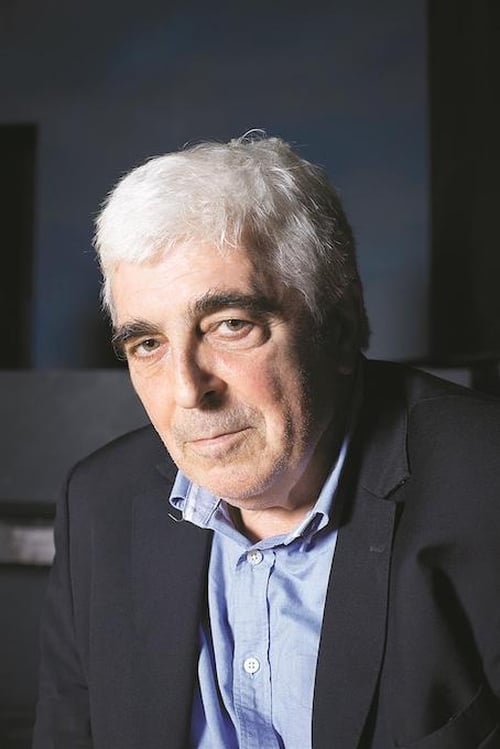
Luís Miguel Cintra
出生 : 1949-04-29, Madrid, Spain
略歴
An iconic actor and stage director in Portugal, Luís Miguel Cintra was born in Madrid, in 1949. His connection to theater began in 1968, at the Faculty of Letters Theater Group, when he was studying Romance Philology at the University of Lisbon. From 1970 to 1972, he attended the Acting Technical Course, in the Bristol Old Vic Theatre School, thanks to a scholarship from the Calouste Gulbenkian Foundation. When he returned to Portugal, he founded, along with Jorge Silva Melo, the Teatro da Cornucópia Company, in 1973, where he directed plays by some of the great names in theater, including Aeschylus, Sophocles, Shakespeare, Brecht, Beckett, Strindberg, and many others, almost always participating as an actor in the plays he directed. At the same time, until the 80s, he was a theater critic for O Tempo e o Modo magazine and he managed the Seara Nova Theater Collection, from Estampa publishing house, and the Theater Collection, from Ulmeiro publishing house. As a reader, Luís Miguel Cintra recorded complete readings of Viagens na Minha Terra, by Almeida Garrett and Amor de Perdição, by Camilo Castelo Branco, as well as poems by Pessoa, Sophia de Mello Breyner, Camões, Antero de Quental and Ruy Belo. In 1987, Cintra made his debut as an opera stage director, with L'Enfant et les Sortilèges, by Ravel and Dido and Aeneas, by Purcell, at the Teatro Nacional de S. Carlos. In the following years, he directed operas by Mozart, Haydn, Cherubini, among others. He worked with the Teatro Nacional de S. Carlos Choir and the Gulbenkian Choir, as a reader, in recitals by authors such as Schubert, Liszt, Sati and Poulenc. In 1984, he entered the Venice Biennial Theater Festival with his group and in 1988 he directed the show La Mort du Prince et Autres Fragments, by Fernando Pessoa, for the Avignon Festival. Later, he kept on presenting plays in Italy, France, Spain and. Belgium In addition to the theater, Luís Miguel Cintra began his career in cinema early, making his debut in a short film by João César Monteiro. From that point until now, he worked in over 70 films, with directors like the aforementioned João César Monteiro, Paulo Rocha, Manoel de Oliveira, Joaquim Pinto, João Botelho, Teresa Villaverde, Pedro Costa and the American John Malkovich. His many awards include two Bordalo da Casa da Imprensa Awards for Best Acting in Film (1995) and Best Acting in Theater (1997), two Globos de Ouro for Theater Personality of the Year (1999) and Best Theater Actor (2003), the Coimbra University Award and the Pessoa Prize, both in 2005. The LEFFEST will pay tribute to Luís Miguel Cintra’s work as an actor, through a selection of films he starred in; and as a stage director, showing recordings of some of the plays, followed by discussions with the audience and several actors he worked with.

The evocation of light in the cinema leads the Character of the Man of Light to ponder over it, over its essence and its multiple manifestations in a revisitation of geographical places and memories.

Once upon a time, the last days of 2028. This world’s disarray, no more no less than ever. Accommodate, adapt, evolve. The inability to live. The endless survival. Angela, a retired history teacher, has long lived in voluntary isolation, locked in an apartment in Lisbon. All her life, she refused conventions. Today, on Christmas Eve, she is faced with a “trivial” decision. Hospitality.

The earth, life and death, indifference and affection, abandonment, faith. Words and silence, light and shadow, the endless survival, the inability to love. A trilogy set in 2017, 2028, 2037. Three women of different generations and backgrounds cross paths; their tentative steps to fully exist evoke fragments of stories, bringing real life experiences and events into each character.

Self
'A Távola de Rocha' enables us to enter Paulo Rocha’s universe, to gather memories and find, within his personal and professional relationships, a key to decipher some of the unknown symbols and allusions contained in his films.

On a rainy night, a sad man leaves his home to deliver a letter to someone who recently left him. At a corner, he meets a woman who warns him about the slippery road. This is how I met Diana. Suffering from a heartbreak, Gonçalo falls from his motorbike.

Cabo Mira
The recollections of a Portuguese teacher in the present will make us follow his father, Manuel, former fighter in our colonial war and constantly tormented with those memories. He'll walk us through the depths of the physical sites that haunt him - from training barracks to the lakes and gardens of his youth and infatuation - and also to his memory's gulf - war and passion combined, entangled, in a battle that questions or howls immemorial existential doubts.

Narrador

Camacho
Alentejo, Portugal, 1950. In a desolate region, where the wind seems to speak, where misery and hunger reign over poorest, a desperate man takes his revenge on those who caused his ruin during the darkest night, unable to get honestly the bread needed to feed his family in the daylight.

Using video assist recorded images, Antecâmara is about the “act” of shooting, the physical reality and ritual energy of two film crews during the preparation for a shot. The first video assist rule is that the image one sees in it has to be more interesting than what one sees outside. Nothing is left to chance. It helps to preview the shot, organise space, arrange the scenes, move the actors and light the set. And it provides it all with a meaning depending on how the camera is used. It is the space-time before the shot, where it is sketched.


Jorge de Sena was forced to leave his country. First he moved to Brazil, and later to the USA. He never returned to Portugal. During his 20-year-long exile, he kept an epistolary correspondence with Sophia de Mello Breyner Andresen. These letters are a testimony of the profound friendship between the two poets, letters of longing and of desire to “fill years of distance with hours of conversation”. Through excerpts and verses, a dialog is established, revealing their divergent opinions but mostly their strong bond, and their efforts to preserve it until their last breaths.
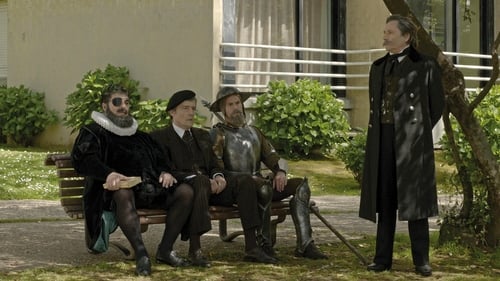
Luís de Camões
Don Quixote, Luís de Camões, Camilo Castelo Branco and Teixeira de Pascoaes meet in an eternal garden in the middle of a modern city and talk about life.

Luis Miguel Cintra, renowned actor, stage director and director of the Portuguese theatre company Teatro da Cornucópia, staged the play Illusion in early 2014. This play was based upon texts by Federico García Lorca. However, the 119th company's show was no ordinary show, for in the cast there were 59 non-actors, amateurs and theatre students.

THE GOSPEL ACCORDING TO JOHN read by Luis Miguel Cintra, one of the most prominent Portuguese actors. A glimpse at a personal experience of Jesus, filmed outdoors, from dawn to sunset, and materialized in the grain of the voice, the expression, control, rhythm and breath of the actor himself.
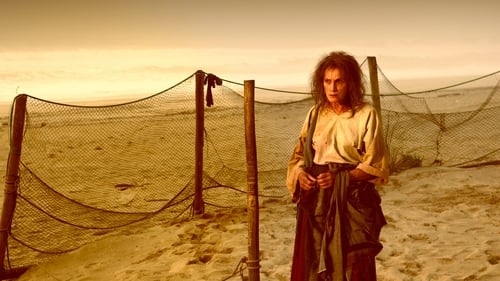
Vitalino
1920s. Vitalino, a small farmer from São Vicente sees his father die of the epidemic which decimated the country. Some years later, of all the brothers, Vitalino is the strongest and takes his father’s place in the house. But the village is too small for his aspirations and he decides to head to Brazil, leaving his sisters in charge of the household. In parallel with Vitalino’s story, If I Were a Thief… I’d Steal portrays the world of Paulo Rocha rummaging through his films and ghosts over the years.

Henrique Castro Lima
Jorge is a loner and a writer of popular books. At night, he looks through other people's windows and thinks that they are truly happy.

Chamico
Despite his age and general weariness, Gebo keeps on working as an accountant to provide for his family. He lives with his wife, Doroteia, and his daughter-in-law, Sofia, but it is the absence of João, son and husband, that worries them.Gebo seems to be hiding something, especially to Doroteia, who is anxiously waiting to see her son again. Sofia is also waiting for her husband to come home, and yet she fears him. All of a sudden, João arrives and everything changes.

Ruben Dario
The short life of the Uruguayan poet Delmira Agustini is colourfully portrayed, not as a conventional biopic, but as a visual poem which evokes the turbulent life and complex personality of the literary heroine as she develops her genius for writing.

Narrator
The flash of socialism that once lit Spain.

Engenheiro
A photographer, Isaac is asked by hotel owners to take portraits of their recently deceased daughter Angélica. When he looks at her through the lens of his camera, she appears to come back to life just for him. He instantly falls in love with her. From that moment, he will be haunted by Angélica day and night.
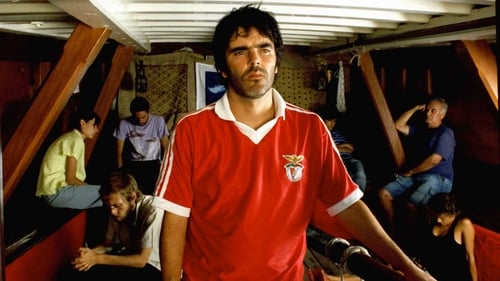
Rosa 2
Manuel bids farewell to his routine and boards a 15th century vessel under pirate law. Treason on board triggers a series of terrible events our protagonist overcomes while keeping his moral principles intact.

ポルトガルの首都リスボンから南の保養地へ向かう列車の中で、青年のマカリオは、隣に座る見知らぬ婦人を相手に、自らの衝撃的な恋愛体験を物語り始める。叔父の経営する用品店で会計士として働いていた彼は、通りの向かいの家の窓辺にたたずむ美しい少女ルイザの姿を目にして、彼女に一目惚れ。彼女との結婚の承諾を叔父に求めたものの、断られた彼は、その後、数々の苦労を味わった末、ついに晴れて結婚の許しを得るのだが…。

António
Dora divides her time between her work as a beautician, her policeman husband António, and her involvement in left-wing politics. A tale of love and how we must learn to cherish it against all odds in the pursuit of happiness.

Diretor Museu Porto Santo
A true story of a doctor and his wife who went on a journey in order to prove that discoverer Christopher Columbus was in fact Portuguese. Inspired by the book "Cristóvão Colon Era Português".

Devil
The Devil talks only through an image and tell his stories to an imprisoned writer.

Carlos Oliveira's literary universe is re-enacted in a studio using the writer’s personal objects and manuscripts, and with the help of Luis Miguel Cintra and Fernando Lopes. Shot with the purpose to document his work in the same way Carlos de Oliveira documented his hometown in Gândara, the film uses all the creative liberty that new digital technology allows in order to recreate the visual and sound records that were also present in the writer and poet’s own work.
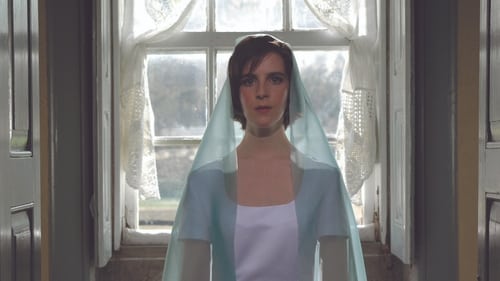
Filipe Quinta
Luciano, fresh out of jail, was taken by his brother, Flórido, to serve in the home of wealthy Alfreda. He was surprised when she told him that her greatest desire was to see the Virgin Mary. Now comes this rich land owner with her sublime pretensions. Isn't it enough for her to have an Aston Martin and a Jaguar in the garage and ten different dresses per season? It was all professor Heschel's fault. Or someone else's. Anyway, to go beyond the promise is heresy. Alfreda said that she wouldn't rest until she saw the Virgin and made her some questions. Filipe Quinta, the Forger, says he has a solution. Meanwhile, Bahia, her husband, listens do music.

Simão, Sapateiro Santo
Manoel de Oliveira directs José Régio's historical epic of religious and political power struggles. King Sebastião plans to make Portugal the world's Fifth Empire.
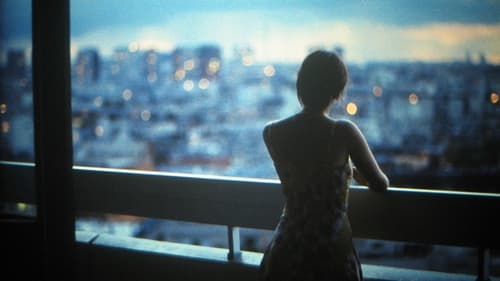
L'oncle
A story that mixes fantasy, philosophy and everyday reality. The problem with Antoine Martin is that he only exists one day out of two. And it is from this circumstance so personal that he meets Clémentine, a girl who lives full time. All this will only deepen his anguish.
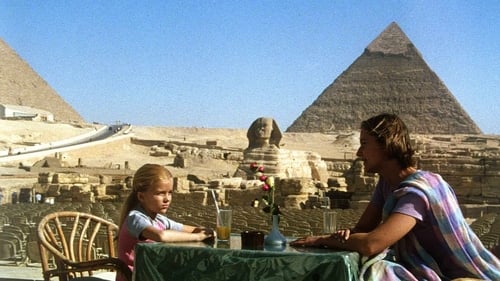
Himself
A meditation on civilization. July, 2001: friends wave as a cruise ship departs Lisbon for Mediterranean ports and the Indian Ocean. On board and on day trips in Marseilles, Pompeii, Athens, Istanbul, and Cairo, a professor tells her young daughter about myth, history, religion, and wars. Men approach her; she's cool, on her way to her husband in Bombay. After Cairo, for two evenings divided by a stop in Aden, the captain charms three successful, famous (and childless) women, who talk with wit and intellect, each understanding the others' native tongue, a European union. The captain asks mother and child to join them. He gives the girl a gift. Helena sings. Life can be sweet.
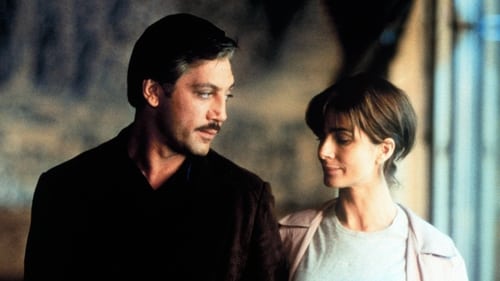
Calderón
A police detective in a South American country is dedicated to hunting down a revolutionary guerilla leader.

Daniel Roper
Having lost her place among the social elite, a widow remarries and starts a family.

professor
A philosophy-obsessed serial rapist stalks a university campus in broad daylight.

Padre António Vieira (middle age)
The story of Father Antonio Vieira, a 17th-century Portuguese priest who lived in Brazil and worked for better treatment of the Indians and to abolish slavery.

Catão
Set in the Lisbon during the festivities of Saint Anthony, the patron saint of lovers and the old town. The story is about Cato, a nationalist politician who is charismatic and unscrupulous. He obsessively pursues Silvia, a mystical and mysterious young transvestite whom he meets at the festival. When Silvia runs into Vicente, a policeman who arrests transvestites and threatens them, Silvia must look towards blackmail to save herself. Compromising photos of Cato start to emerge among opposition parties and he must do all in his power to save his political career.
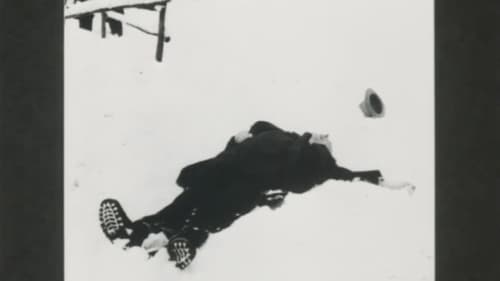
O Caçador
Monteiro moved far away from the visual opulence defined by his earlier films with his inspired adaptation of radical Swiss writer Robert Walser’s anti-fairy tale. Carefully restricting the image track, Monteiro maintains an almost totally black screen in order to focus instead on the voices of Snow White, the Prince, the Queen and the Hunter, engaged in an extended debate about love, free will and the events leading up to the fateful attempt on the maiden’s life. Despite its visual austerity, Snow White is haunted by the arresting images with which it begins – infamous black-and-white photographs of Walser lying dead in the snow after his heart attack outside a Swiss asylum at the age of seventy-eight, a strange realization of the “death of the author” so central to postmodern literary criticism.
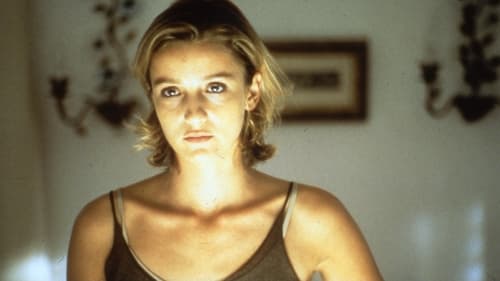
Dr. João José
The story of a family of bull fighters.
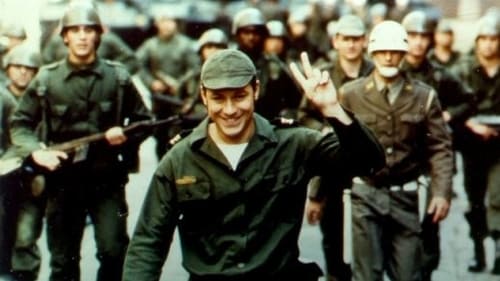
Brigadeiro Pais
Story of the 1974 coup that overthrew the right-wing Portuguese dictatorship--which continued the fascist policies of long-time dictator Antonio Salazar--and of two young army captains who were involved in it.
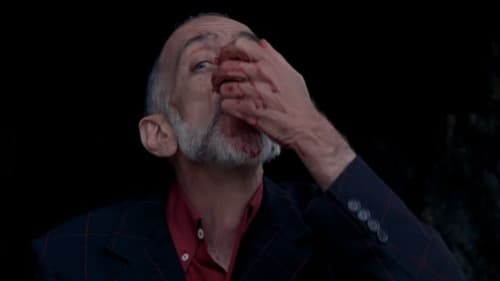
God's Messenger
After receiving a visit from a messenger of God, João de Deus wins his buddy's girlfriend through a roll of the dice.

M. da Silva
A well-bred, lovely, spiritual, sad young woman marries an attentive physician who loves her. She feels affection but no love. Soon after, without design, she falls in love with Pedro Abrunhosa, a poet and performance artist. He also loves her. She keeps her distance from him, confessing her love to a friend who is a nun and, later, to her husband. Hunger for her love and jealousy consume him; she attends him as he wastes away. With his death, she can marry and express her passion, but what she does and how she explains herself, particularly to her cloistered friend, is at the heart of the film. Glimpses of convent life and of Abrunhosa on stage give contrast and mute comment.

Son
An anthology film drama featuring a poetic mirror structure based on existential identity. In "The Immortals," adapted from a Helder Prista Monteiro play, two famous doctors, an 80-year-old father, and his 60-year-old son, contemplate senility and death. "Suzy," from an Antonio Patricio story, is set in the '30s when a young courtesan dies on the operating table. "Mother of the River" is from an Agustina Bessa-Luis fable about eternal life.

In this French-Portuguese film -- directed by Jacques Rivette's screenplay collaborator Christine Laurent -- French vocalist Laure Constant (Laurence Cote) goes to Montevideo, Uruguay, to see her old lover Colossus (Jose Olivera), but when he's a no-show, she becomes involved with several other men, while listening to advice from some older French women who are costume designers. Shown at the 1997 Locarno Film Festival.
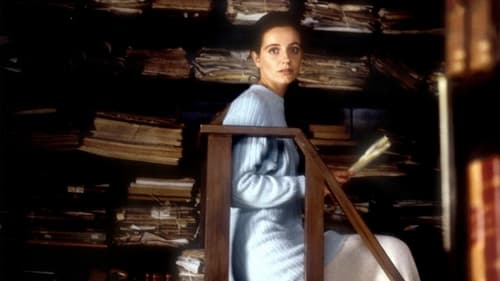
Baltar
The journey of Michael Padovic, an American professor who arrives with his wife, Helene, at a Portuguese convent where he expects to find the documents needed to prove his theory: Shakespeare was born in Spain; not in England.

Actor convidado
The film tells a story of Mariana, a nurse who leaves Lisbon to accompany an immigrant worker in a comatose sleep on his trip home to Cape Verde. The devoted Portuguese nurse took a journey only to find herself lost in abstract drama.

Blind Man
A blind beggar is robbed of his chest of money. The theft leads to a dramatic situation in the street where he begs every day.

Friend at the Apartment
This dark and intense drama follows the slow and painful destruction of a young, passive woman as she watches her family fall apart. Maria is the shy and dutiful daughter upon whose shoulders the family traumas have fallen. In addition to a regular job she cooks, cleans, and studies. Her parents offer no assistance as her father is blind, with a tendency towards violence when drinking. His wife, the focus of his violence is terribly unhappy. After a particularly brutal beating, Maria's brothers rise up against the father and end up leaving the home. It is up to Maria to try to bring the factions together. Maria's pressures increase after she calmly stabs her boss during an attempted rape, and then copes with her mother's suicide.

Miguel
Miguel (Luis Miguel Cintra) is lucky that his income will only level off if he neglects his business as a financier, and his wife and family will be well supported. Why? Because he has begun hearing noises that no one else hears, noises that bother him a great deal, and that make it impossible for him to bear human society. His wife (Jessica Weiss) is thoroughly put out by this radically changed behavior in her formerly good husband, but though she considers leaving him, she stays by his side. Deep in the mountains, Cecelia (Rita Dias), a devout, pure young cowherd, has been brutally raped by an old man. Her boyfriend (Pedro Hestnes) has killed the rapist, and fled the area. As a result of the rape, Cecelia is pregnant. One day, while driving in the mountains, Miguel gives Cecelia's boyfriend a ride. The two of them chance upon her sitting amid the rocks with her infant baby.
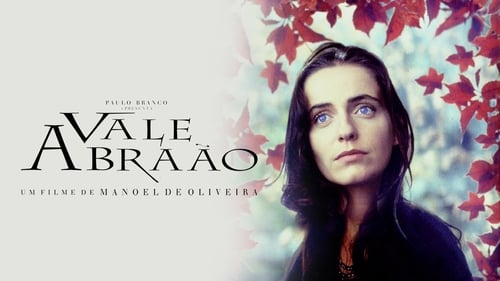
Carlo Paiva
Ema is a very attractive but innocent girl, so pretty that cars crash in her presence. Young marries Dr. Carlos Paiva, a father's friend, to whom she is not attracted. They move to the Valley of Abraham. Carlos loves her, but decides to sleep in a separate room to avoid waking Ema when he has to return late at night. With time she begins to feel unhappy about her marriage, so she finds a lover.

Narrator
Zephyrus is a film-voyage, a fresco about Southern Portugal. A movie dealing metaphorically with the South of Portugal, singling it out as a place where various cultures came together and mix, giving birth to a singular identity, as unique as this movie itself, a mixture of fiction and documentary

Vincent, a young Swiss, is upset by his meeting with the city of Lisbon. He will meet two persons: a prostitute of high flight and a great writer fallen and suicidal.

Highschool Teacher Luis
One night Jorge will meet with a Japanese industrialist, who will allow him to abandon his teaching position and resume his chemical work. However, when he gets home he finds a person there.

Freitas Fortuna
Portrait of the last days of the life of Portuguese writer Camilo Castelo Branco.
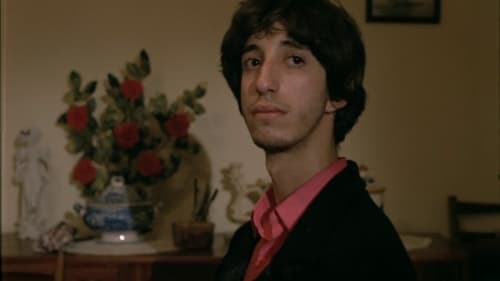
Hyperion Extracts Reader (voice)
Eloi, a paunchy middle-aged man, finds Samuel, a young sad sack, about to kill himself by plunging into the sea. Eloi takes Samuel under his wing, giving him a hot meal and bringing him to a seedy night club to introduce him to Esperança, who is said to be the most beautiful sex worker in Lisbon—and is also Eloi’s daughter.

Voice
A musical fable inspired by Plato’s Symposium. In a shameless speech, Alcibiades, a prominent young Athenian aristocrat, propounds his strategies to seduce the old philosopher, Socrates. He believes that the wisdom and knowledge he imagines Socrates has, can be transmitted via physical contact.
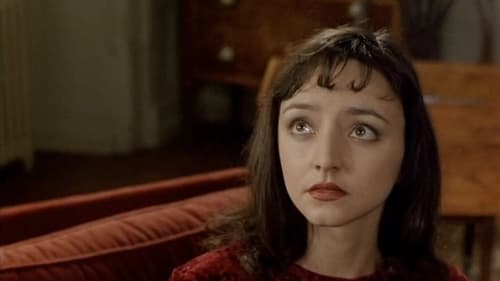
Prophet
In a mental institution the patients see themselves as people like Jesus, Lázaro, Marta, Maria, Adão, Eve, Sonia, Raskolnikov, Aliosha e Ivan Karamasov, a Philosopher, a Profet, Santa Teresa d'Avila, reciting the Divine Comedy.
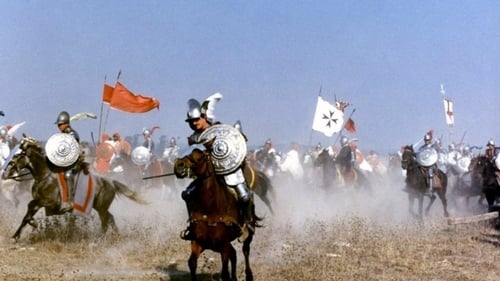
Ens. Cabrita, Viriato, Don João de Portugal
Episodes from entire military history of Portugal are told through flashbacks as a professorish soldier recounts them while marching through a Portuguese African colony in 1973.

The Uncle
Nino, tough but sickly, and his older brother Vicente live in the country with their father. After their father disappears ― we’re never sure why ― murder is suggested. Vicente brings his girlfriend to the house, and a different kind of family is established as the three youngsters grow fiercely protective of each other. But their uncle grows suspicious about the fate of the missing father and forcibly kidnaps Nino, taking him away to the city and leaving Vicente to locate him there.
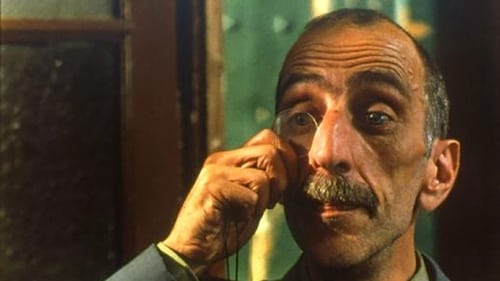
Lívio
Lisbon, 1989. A middle-aged poor man, tormented by an illness, lives in a cheap room in a family boarding house, in the old section of the city's waterfront.

Artur (voice)
Laura lives in the country with her considerably older husband. When Nuno, her brother who study in Lisbon, pays a visit, he realizes that his sister does not have a happy life. He initiates a friendship with a worker on the farm. The circumstances turn Laura and Nuno against each other...
Portrays the repressed sexuality and homosexual desire in a rural setting and elliptically and delicately the small farming community that serves as the backdrop for the impossible relationships pursued by Laura and her brother.

Narrator
An artistic and poetic documentary about the meaning of the Portuguese flag.
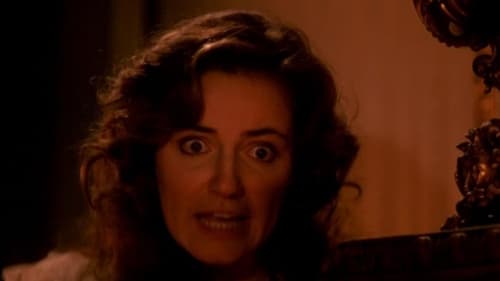
Viscount d'Aveleda
This odd film is a major representative of an even odder film genre: direct-to-celluloid opera. It was commissioned by the Portuguese master of style, director Manoel de Oliveira from composer João Paes. Musically, it ranges from 19th-century romanticism to popular, modernist and even "post-modernist" styles. In the initially tame story, a host-narrator tells the story of a wedding between the two lovebirds: Viscount d'Aveleda and the beautiful Marguerite. However, what happens in the bridal chamber is incredibly bizarre. The events after that are even stranger (the film out-does even Luis Buñuel in that department), and the wedding guests and family indulge in cannibalism, among other perversions.
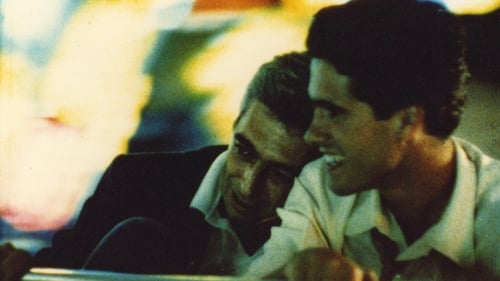
Dr. Fernando
12-year-old Miguel is punished because he has not done his homework properly: he must stay at his aunt's inn for holidays. First bored, then a friendship begins between him and other inn's regular holiday-makers, like maid Luisa or fisherman João. But doctor Fernando's arrival is going to overwhelm the place's peaceful life and to change Miguel's mind.

Count of Trava
Set four years after the Portuguese revolution and the simultaneous loss of the Portuguese empire in Africa, the story concerns a director who sells guns to finance his play.

João
This visually striking drama is taken from the classic Japanese novel Tales Of Genji by Marasaki Shikibu. Set in modern Portugal, Joao (Luis Miguel Cintra) is a left-wing political leader and ladies man with a bright future. His ex-wife Isabel (Manuela de Freitas) both loves and hates him as Joao plays on her wavering emotional state. He is sent to Italy to retrieve wayward family member Antonia (Caroline Chaniolleau), the beautiful young woman with a terrorist boyfriend. Joao is forced to recognize his feelings as the political and amorous climate changes around him.

L'Intrus
Manoel de Oliveira plays his film in three stages: the first part - a play, the second can be roughly defined as a silent film (with the behind the scenes read excerpts from Beckett works), but in the end the director brilliantly performs the same material of the avant-garde exercise. Surprisingly, a joke, repeated three times, each time everything sounds fresh and develops into an almost verbatim adaptation of the biblical "Book of Job" - a spectacular point in a parable about how hard to empathize with other people's misery, when you have your own.

Don Rodrigue
During the century of the Spanish Gold, Doña Prouhèze, wife of a nobleman, deeply loves Don Rodrigo, who is forced to leave Spain and go to America. Meanwhile Prouhèze is sent to Africa to rule the city of Mogador. Ten years later Rodrigo leaves America and travels to Africa in search of Prouhèze to find out that she died and eventually meeting her daughter.

Carlos
Director Jorge Silva Melo has developed a viable, though highly intellectual mystery story about the world of art and culture and murder in this somewhat theatrical presentation. When German artist Bernd Hoffmann (Michael König) arrives in Lisbon to oversee the installation of his paintings in a joint exhibition with another Berlin artist, Hanna Brauer (Charlotte Schwab), Hanna never shows up. Hoffmann is puzzled because he is certain he saw a video sequence with Hanna at the exhibition, and he begins to look for her. Another Lisbon cultural center, a theater, is also having problems that may or may not be related -- and the mystery deepens when Hanna is found dead, either by her own hand, or murdered.

In a specialized, hermetic drama about love won and lost, not necessarily by the same individuals, novice director Christine Laurent has focused on the backstage melodramas of an opera company. The conductor for an upcoming performance of the Marriage of Figaro has his mind and heart on other matters -- an entrancing diva who keeps him enraptured with her presence and voice. In the meantime, he finds fault with his cast members who cannot, of course, measure up to the woman of his dreams. As singers encounter one problem or another, it is clear that something has to be done about the conductor. Director Laurent designed costumes for both theater and opera, giving her some insight into the venue.

An approach to the life and work of Jorge de Sena, relying on the testimonies of Mécia de Sena (author of the texts she reads) and the insertion of brief segments of fiction from texts (poems, fiction and theatre) by the writer.

Armando (voice)
"Essay on the Military and the Power", a phrase that also belongs to the title of "Gestures & Fragments", sums up the spirit of the film, based on three points of view on the same theme: Otelo Saraiva de Carvalho and Eduardo Lourenço, in their own roles, and the one played by Robert Kramer, as an American journalist bent on seeking explanations for the process of the Portuguese Revolution.

Wenceslau de Moraes
This film depicts the life of the 19th-century Portuguese writer Wenceslau De Moraes by means of nine ancient ballads from China. The writer married a Chinese woman after he left his wife and family to go live in Macao. Later, he moved to Japan where he fell in love with a Japanese woman, staying in Japan for the rest of his life. Mixed in with the career and loves of Moraes is the history of Portugal at home and in its colonies.
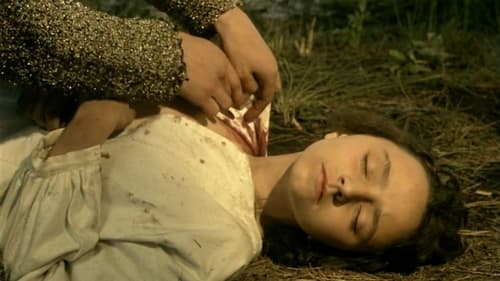
Pilgrim / Knight / D. Raimundo
A bewitching combinatory adaptation of the Bluebeard tale and a 15th century Portuguese fable of a damsel who disguises herself as a knight errant.

Screenplay
The film of a performance of a selection of cabaret comedy sketches by Karl Valentin, with Jorge Silva Melo as stage director. The show was a complete success and has become almost legendary. Solveig Nordlund shot it, adding some more sketches that weren’t included on the show.

Valentin 1
The film of a performance of a selection of cabaret comedy sketches by Karl Valentin, with Jorge Silva Melo as stage director. The show was a complete success and has become almost legendary. Solveig Nordlund shot it, adding some more sketches that weren’t included on the show.

Art Direction
A woman arrives home, apparently coming from her job, and sets out about house chores and placing every object around her with extreme care. The only company she has is the radio, tuned to a station of popular music hits that the audience can ask for by telephone. There is a single hint that she may have breast cancer. Then, she sets the table for a large dinner - for one - including a champagne bottle. She commits suicide by pills overdose, before she utters a word.

Production Assistant
A woman arrives home, apparently coming from her job, and sets out about house chores and placing every object around her with extreme care. The only company she has is the radio, tuned to a station of popular music hits that the audience can ask for by telephone. There is a single hint that she may have breast cancer. Then, she sets the table for a large dinner - for one - including a champagne bottle. She commits suicide by pills overdose, before she utters a word.

A woman translates the front page of H.P. Lovecraft's book “The Silver Key”. Her husband, a journalist, listens. The book describes the conflicts between the real and the imaginary, and tells how Randolph Carter, the film's character, leaves everyday life in search of his childhood dreams.

O Outro Teatro proposes a look at the independent theater manifestations that came in the wake of the pioneering gestures of Teatro Experimental do Porto.

A representation of fiction and documentary about the museum of Óbidos, Portugal.

Narrator (voice)
Maria works in a German umbrella factory as the foreman of the production sector. João Lucas has given up on living a normal life and practically lives in bed, in the midst of green plants. His father expressly desired that his son film this eccentric daily life in 8 mm format. Maria’s wages are dilapidated to the last penny by this amateur, monstrous, family movie production.

Lívio
The tribulations of two friends who, in despair, start begging from door-to-door, and are given a bundle including, literally, a pair of deadman's shoes

Narrator
Documentary by Manoel de Oliveira filmed in 1965 and exhibited in 2008 in the Venice Film Festival.

Narrator
Manoel de Oliveira's homage to Vila do Conde, with a poem by José Régio. It was shot in 1965, but only completed in 2008.

































